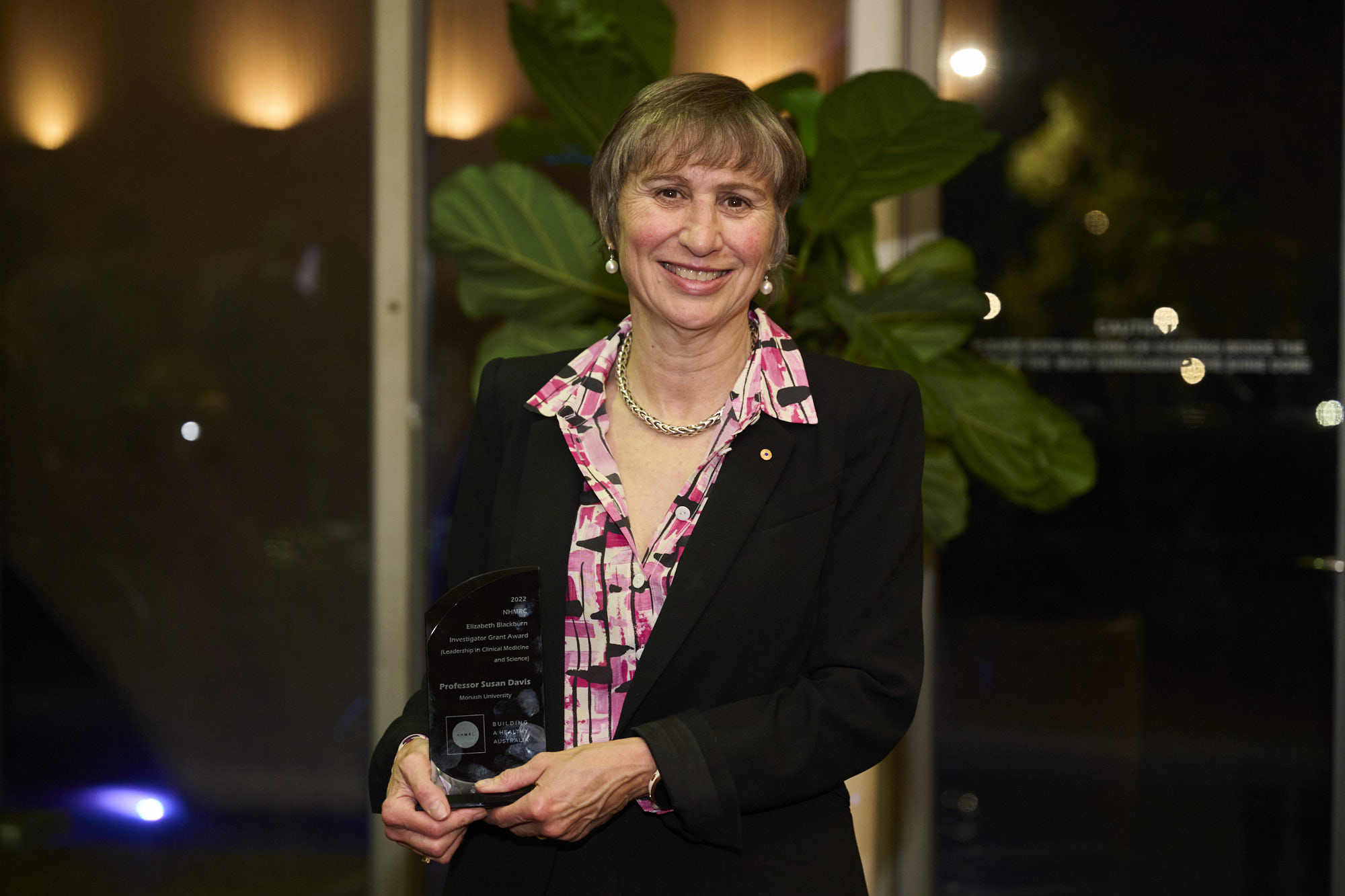Professor Susan Davis AO, Head of the Monash University Women’s Health Research Program, focuses her research on understanding the role of sex hormones, particularly testosterone, in women’s health. Her program of research involves a series of innovative, complementary clinical trials to determine if the hormone can serve as a new therapy to protect against leading causes of ill health in postmenopausal women. Read on to find out more about Professor Davis’s research, in her own words.
While it was a given that sex hormones are central to women’s reproductive function, the pivotal role sex hormones play in non-reproductive health was less understood. Testosterone was considered a ‘male’ hormone, and low libido in women dismissed as 'normal ageing', was neglected and under-researched.
Over the last 20 years, I have led a program of research to better understand sex hormone action, deficiency and replacement in women. My team’s work provided the first reference ranges for sex hormone levels in women across the adult life span and new insights into the contribution of oestrogens and androgens to non-reproductive health.
Specifically, our work showed testosterone is an essential female hormone associated with sexual, cardiovascular, bone and cognitive health.
Our large community-based studies provided greater understanding of the physical and psychological health of adult women across the life span, including the immediate and long-term impact of menopause.
I have led large national and international clinical trials that have shown testosterone to be effective for postmenopausal women with low libido and that it could be given safely. However, it is not known whether the benefits of testosterone extend beyond sexual wellbeing in women.
Australians aged over 65 years comprise 16% of the population and consume half the healthcare costs—and this proportion is increasing. For women aged over 65 years, the main disease burdens are cardiovascular disease (heart failure now the most prevalent), musculoskeletal disorders, including muscle wasting and osteoporosis, and dementia, which has increased by 33% since 2003. These conditions have shared risk factors (physical inactivity, insulin resistance/ diabetes and chronic inflammation), as well as linked pathophysiology. In women, they all occur at a life stage when testosterone levels are at their lowest.
My research to date has provided biological plausibility, and preliminary clinical evidence, that relative testosterone insufficiency has a role in the evolution of all these conditions.
This Investigator Grant provides a unique opportunity for me to lead a cohesive series of studies that will evaluate testosterone therapy against the leading morbidities in older women: heart failure, loss of muscle mass and function, and cognitive decline. Concurrently, this will establish whether the same intervention could ameliorate premature bone loss and sexual dysfunction in women with early menopause.
This will determine whether testosterone therapy, as a novel intervention, has the potential and feasibility to reduce premature morbidity and mortality in women. It is estimated that 2.9 million Australian women suffer these conditions.
This NHMRC support also enables me to support emerging research leaders and provide opportunities to mentor PhD students and postdoctoral fellows in clinical trial design and conduct, and observational research methods.
As a PhD student I could never have predicted my career path which has evolved as a consequence, seizing opportunities, having a dedicated and talented team, continuing research success in both my studies and funding outcomes.
As Winston Churchill said, 'Success consists of going from failure to failure without loss of enthusiasm'.

